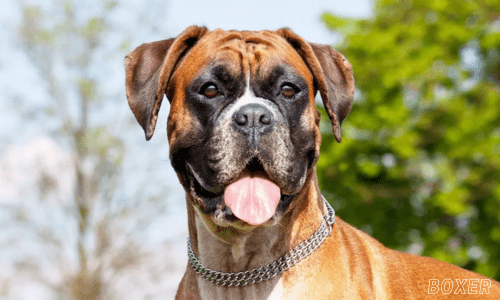Introduction
When someone is having emotional or psychological problems, emotional support dogs are a huge help in offering them stability, comfort, and company. The mental health of their owners can be greatly enhanced by the specific therapy that these properly trained dogs provide.
We will look at a number of dog breeds in this guide that work well as emotional support animals and talk about how to choose the best breed for a given set of needs.
Table of Contents
Criteria for Selecting Emotional Support Dog Breeds
Selecting the ideal breed for emotional support requires taking into account a number of variables to guarantee compatibility and efficacy of care. Among these, temperament comes in first because emotional support dogs must be composed, kind, and perceptive of their owners’ emotional needs.
The size and layout of the living space should also fit the owner’s housing condition and lifestyle. Larger breeds might need more space, but smaller breeds might be more suited for apartment living.
The dog’s degree of activity should also correspond with the owner’s preferences and skills. While some people might benefit from an energetic breed that promotes outside activities, others might want a more relaxed friend.
People can select a breed that best suits their emotional support needs by weighing these characteristics, which will help them narrow down their selections.
Popular Dog Breeds for Emotional Support
1. Labradors

Some of the most well-liked dog breeds include labradors, who also perform a great job of supporting their owners emotionally. They are the perfect companions for people dealing with emotional or psychological problems because of their good intelligence, trainability, and loving disposition. By detecting when their owners are upset or nervous, labradors have a built-in tendency to reassure and massage them.
Labradors also flourish in situations where they can offer continual companionship since they are quite gregarious and love being among people. A labrador’s natural capacity to uplift its owner’s spirits and offer emotional stability is evident in everything they do, from cuddling on the couch to going on walks or just being there.
2. Golden Retrievers

Due to their well-known gregarious and amiable nature, golden retrievers are popular family pets and fantastic emotional support animals. Because of their empathy, they are able to form a close bond with their owners and offer them unwavering love and support when they need it most. Due to their keen emotional awareness, golden retrievers are able to discern when their owners are upset or nervous.
Golden Retrievers are also well-suited for people who have children or other pets because of their reputation for tolerance and patience. Their kind demeanour and loving character make them a soothing presence in the house, giving their owners a sense of peace and security.
3. Cavalier King Charles Spaniels

Cavalier King Charles Spaniels may be small in size, but they possess a big heart and a loving personality that makes them exceptional emotional support animals. These affectionate dogs thrive on human companionship and form strong bonds with their owners, providing unwavering loyalty and affection.
Despite their small stature, Cavalier King Charles Spaniels have a resilient spirit and a playful demeanor, which can bring joy and laughter to their owners’ lives. Their gentle nature and adaptable personality make them well-suited for individuals of all ages, from children to seniors.
4. Poodles

The intelligence, adaptability, and compatibility of poodles as emotional support animals are highly valued attributes, in addition to their exquisite look. Standard, miniature, and toy poodle sizes are available, providing options for people with varying living situations and space limitations.
With their strong intelligence and eagerness to please, they are extremely trainable and receptive to their owner’s requirements. Their hypoallergenic coat makes them perfect for allergy sufferers. Poodles are great candidates for jobs involving emotional assistance since they enjoy learning new things and thrive on mental challenges.
5. French Bulldogs

French Bulldogs may have a unique appearance, but behind their wrinkled faces and bat-like ears is a kind, caring heart. The laid-back and lively disposition of these adorable canines is well-known, and they have the ability to make their owners laugh and smile.
French bulldogs are very devoted to their owners and create deep lifelong ties, even if they have low energy levels. They are ideal for apartment living because to their small size and loving disposition, which guarantees that they will always be there for their owners as emotional support and companion.
6. Beagle

Beagles are popular because of their active and cheerful attitude, which makes them excellent companions for anyone in need of emotional support. Beagles, who are well-known for their loving personalities and mild dispositions, cling closely to their owners and enjoy the company of people.
Their lively personalities and fun manners make them great companions for outdoor activities, offering chances for physical activity and strengthening relationships with their owners. Additionally, beagles are quite flexible and may live well in a variety of settings, including small apartments and large homes with backyards.
Beagles can give their owners a sense of adventure and discovery through their great sense of scent and natural curiosity, inspiring them to enjoy life’s small joys and live in the present.
7. Bichon Frise

Bichon Frises are wonderful emotional support partners because of their happy demeanour and loving character. These little, cuddly dogs are eager to please their owners and thrive on human interaction, offering them unconditional love and companionship.
They are good for allergy sufferers because to their hypoallergenic coat, and their lively nature brings happiness and lightness into the house. Because of their exceptional adaptability to a wide range of living conditions and love of being the centre of attention, bichon frises make ideal companions for anyone looking for continuous company.
Bichon Frises have a way of lifting their owners’ emotions and adding cosiness and warmth to their lives with their expressive eyes and endearing personality.
8. Shih Tzu

Shih Tzus are wonderful emotional support animals because of their loving disposition and devoted companionship. These tiny canines’ calm, loving temperaments can help ease the emotional distress of their owners.
Shih Tzus develop close relationships with their owners and take pleasure in being by their sides, offering consolation and confidence all the time. Regular grooming is necessary for their long, flowing coats, but many owners feel that grooming is a connecting and relaxing experience.
Shih Tzus, despite their diminutive stature, possess a robust disposition and an energetic nature that can infuse their owners with happiness and good humour. For those who require emotional support, Shih Tzus are excellent companions due to their loving disposition and steadfast loyalty.
9. Corgi

Corgis are little dogs, but their loving hearts and large personalities make them great emotional support animals. Recognised for their perceptiveness and gregarious disposition, Corgis create close relationships with their owners and are constantly willing to please.
They are fantastic companions for outdoor activities because of their joyful nature and endless energy, which offer chances for adventure and fitness. In addition to their remarkable degree of adaptability to different living situations, corgis also get along well with kids and other pets.
Corgis are known for their kind dispositions and expressive eyes, which are capable of uplifting their owners’ emotions and offering them unwavering support and compassion.
10. Boxer

Boxers are wonderful emotional support animals because of their friendly and devoted nature. These industrious canines develop close relationships with their owners and thrive on human company, showing them complete dedication and loyalty.
Boxers, despite their bulky physiques, have a kind and playful nature that can make their owners happy and laugh. They love being a part of the family dynamic and are quite adaptive to different living circumstances.
Boxers are also well-known for their protective tendencies, which can provide their owners with a feeling of security and comfort. Boxers are great companions for people who need emotional support because of their loving nature and gregarious demeanour.
Special Considerations for Specific Needs
It is important to take into account personal needs and preferences when choosing a companion, even if some breeds may be particularly good at offering emotional support. To avoid allergic reactions, hypoallergenic breeds such as Portuguese Water Dogs or Poodles may be better suited for people with allergies. Another important consideration is lifestyle compatibility, since certain breeds may need more activity or grooming than others.
Furthermore, the owner’s resources and abilities should be matched with the breed’s training requirements. Although specific training is often provided to emotional support dogs in order to improve their therapeutic capacities, it is imperative that owners continue to reinforce positive conduct and offer continuous care and support.
Conclusion
For anyone dealing with emotional or psychological difficulties, emotional support dogs provide priceless company and comfort. People can gain a lot from the therapeutic presence of these devoted pets if they choose the correct breed based on temperament, size, activity level, and personal needs.
Something like the loving disposition of a Labrador, the sympathetic disposition of a Golden Retriever, the loving disposition of a Cavalier King Charles Spaniel, the wit of a Poodle, the allure of a French Bulldog, the lively disposition of a Beagle, the loving disposition of a Bichon Frise, the serene presence of a Shih Tzu, the limitless vitality of a Corgi, or the devoted loyalty of a Boxer.
Emotional support dogs are remarkably effective in enhancing their owners’ general well-being.These canine friends have the potential to significantly improve the lives of people in need when given the right thought and training.
FAQs
1. What is an emotional support dog?
An emotional support dog is a canine friend that has received specialised training to offer consolation, companionship, and therapeutic help to people experiencing emotional or psychological problems. These dogs are acknowledged for their capacity to enhance their owners’ mental health, but they are not regarded as service animals and do not enjoy the same legal rights to enter public spaces.
2. What are the benefits of having an emotional support dog?
There are several advantages to owning an emotional support dog, such as:
- less sense of isolation and loneliness
- Enhanced feeling of comfort and security
- Improved mental stability and mood
- Possibilities for engaging in social and physical activity
- Enhanced quality of life and general well-being
3. How do I know if I qualify for an emotional support dog?
Generally speaking, getting an emotional support dog requires a referral from a licenced mental health practitioner, like a psychiatrist or therapist. Emotional support animals may be appropriate for anyone with a diagnosed mental health issue, such as depression, anxiety, PTSD, or other emotional disorders.
4. What breeds are best suited for emotional support roles?
Because of their loving behaviour, trainability, and temperament, a number of dog breeds are excellent choices for emotional support tasks. Labradors, Golden Retrievers, Poodles, French Bulldogs, Beagles, Bichon Frises, Shih Tzus, Corgis, and Boxers are a few common breeds. The ideal breed for emotional support, however, ultimately depends on personal needs and tastes.
5. How do I choose the right emotional support dog breed for me?
The temperament, size, activity level, grooming needs, and fit with your lifestyle and living arrangement are all important considerations when selecting the best breed of emotional support dog. To choose the ideal canine companion for your emotional support requirements, it is imperative that you investigate various breeds, visit breeders or rescue groups, and spend time engaging with specific dogs.
6. Do emotional support dogs require special training?
Even though emotional support dogs may not need as much training as assistance dogs, they should nevertheless go through basic obedience training and socialisation to make sure they act appropriately in different settings. A professional trainer or behaviourist may teach specialised tactics to emotional support dogs so they can be trained to comfort and assist their owners during difficult times.
7. Can any dog be an emotional support dog?
Any dog can help its owner emotionally, but some breeds are more suitable than others because of their trainability, temperament, and personality. Furthermore, those with particular requirements or preferences—like allergies or lifestyle limitations—might need to take into account hypoallergenic or better suited breeds for their homes.
8. Are emotional support dogs allowed in public places?
The legal rights of emotional support dogs to enter public spaces are different from those of service dogs, which are trained to carry out specific tasks for people with disabilities. However, depending on local rules and regulations, certain places might permit emotional support dogs on a case-by-case basis. It is critical to inquire about a company’s or organization’s specific policy on emotional support animals.
9. How can I ensure the well-being of my emotional support dog?
Your emotional support dog has to have their physical, mental, and emotional needs met in addition to receiving the correct attention, care, and veterinary attention to ensure their wellbeing. A balanced diet, frequent exercise, mental stimulation, socialisation, and chances for friendship and bonding are all part of this. Furthermore, it is imperative to keep a close eye on your dog’s health and conduct and to seek professional assistance if problems develop.
10. Can I have more than one emotional support dog?
Even if having many emotional support dogs is conceivable, it is important to think about your ability to give each dog the care and attention they need, as well as whether they get along well with one another. Furthermore, zoning and housing laws may place restrictions on how many pets are permitted in a given home. When making a choice, it is critical to evaluate your capacity to provide for the demands of several emotional support canines.
- Related Articles

Shielding Homes: The Vital Roles of Protective Dog Breeds

“Unveiling the Charm: Top 05 Friendliest Dog Breeds Revealed”

“The Ultimate Guide to Fastest Dog Breeds for Running”

08 Adorable Fluffy Dog Breeds That Will Melt Your Heart

“Faithful Companions: Discovering the Most Loyal Dog Breeds”


10+ Strong and Powerful Dog Breeds for Active People

The 10 Cutest Small Dog Breeds that Fit in Your Bag

5 Most Popular Dog Breeds in America Today

Top 10 Dog Breeds for Emotional Support and Therapy

11 Healthiest Dog Breeds That Live the Longest

Top 15 Guard dog breeds for home protection

15 Hypoallergenic Dog Breeds That Won’t Make You Sneeze


The Best 12 Dog Breeds for First-Time Owners

Low-Maintenance Dog Breeds That Are Easy to Care For

Top 10 Family-Friendly Dog Breeds for Kids

Ultimate Guide to Choosing a Small Dog Breed for Your Apartment


Discover All Dog Breeds A to Z: Embark on an Exciting Journey

